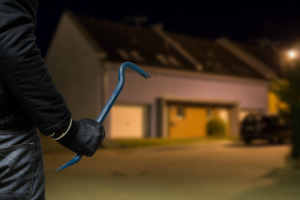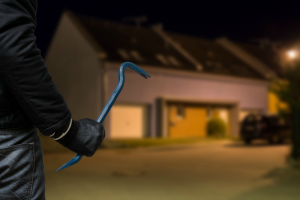 I’d wager that no one leaves their home without being at least somewhat concerned about the belongings that they leave behind. Contained within most homes, is the sum total of the owner’s life, and not just in a material sense. There are plenty of items with sentimental value as well. And all of it is typically protected by little more than a few locks on the doors and windows. If someone really wants to break into your home and steal what you own when you’re not around, chances are that there isn’t much standing in their way.
I’d wager that no one leaves their home without being at least somewhat concerned about the belongings that they leave behind. Contained within most homes, is the sum total of the owner’s life, and not just in a material sense. There are plenty of items with sentimental value as well. And all of it is typically protected by little more than a few locks on the doors and windows. If someone really wants to break into your home and steal what you own when you’re not around, chances are that there isn’t much standing in their way.
But if you want to make it harder for any would-be burglar to enter your home, or at least make your home a less desirable target, don’t just buy an alarm system and call it day. You should really listen to people who are burglars and take their advice. An MSNBC affiliate out of Atlanta recently did just that. They sent letters to 86 people who had gone to prison for burglary [1] and asked them a variety questions about their crimes. Their answers could tell you a lot about how to protect your home from this crime. What they told reporters included the following:
- Don’t advertise what you own. One burglar admitted to looking for homes that had cars with NRA bumper stickers, which would indicate that there are plenty of guns to steal there.
- Burglars don’t just look in obvious places. If they feel safe, they’ll tear everything up looking for hidden valuables.
- The best time to break into a house was between 12:30 and 2:30, because it’s rare for both kids or adults to be home at that time period.
- Not all burglars are intimidated by security alarm signs and cameras, and many admitted to knowing how to disable alarms. Some suggested that cameras would indicate that there are valuables in the home.
- As you might expect, burglars are terrified of large dog breeds.
- Burglars aren’t typically killers. They don’t want to a serious confrontation with a homeowner, so any sign that someone is home is a deterrent.
When asked what precautions homeowners should take to keep their homes from being burglarized, most of the inmates gave similar answers. For instance, many of them suggested that homeowners leave some sign that someone is home, such as parking a car in the driveway or leaving a TV or radio on.
But the biggest deterrent is visibility, and that applies in more than one sense. They suggested that you keep your bushes and trees trimmed so that your home is easy to see. Homes that were isolated, either by the distance from other houses or by being obscured by big fences and vegetation were definitely easier to rob. It seems that the things people build around their homes to make them feel safer have the opposite effect.
And of course, visibility means nothing if no one is actually watching your home. One inmate admitted to preferring homes in communities where the neighbors were very reserved and conservative, and others recommended that you get to know your neighbors. The implication is obvious. In neighborhoods where people don’t really know each other or care about each other, it’s quite easy to break into a home.
That’s because nobody wants to get involved when they see someone hopping your fence, nobody can tell if anything out of the ordinary is going on in your home if they don’t know you, and nobody is really paying attention. As a result, nobody calls the cops.
The bottom line is that neighborhoods, where people talk to each other and don’t feel the need to build barriers between each other, are safer. And that’s probably something that we’ve known intuitively all along.
